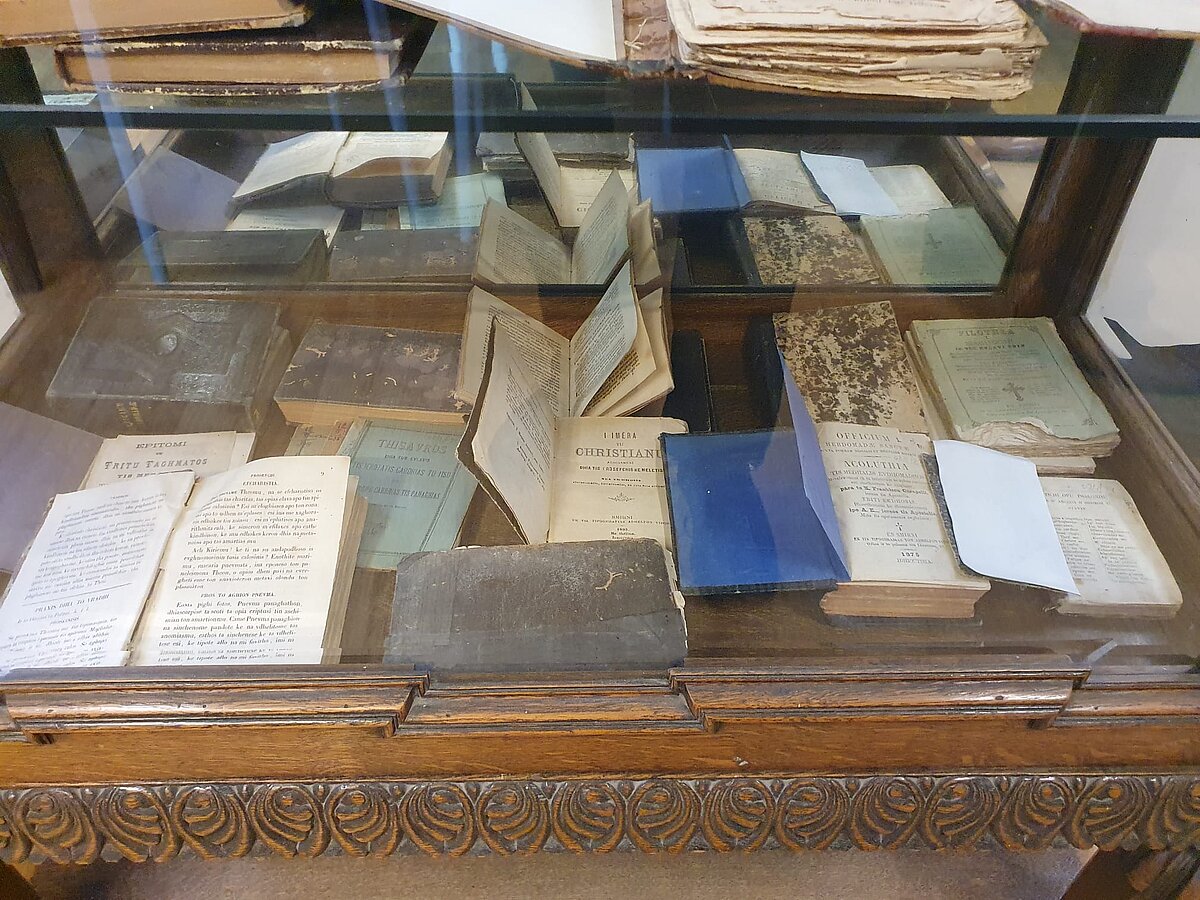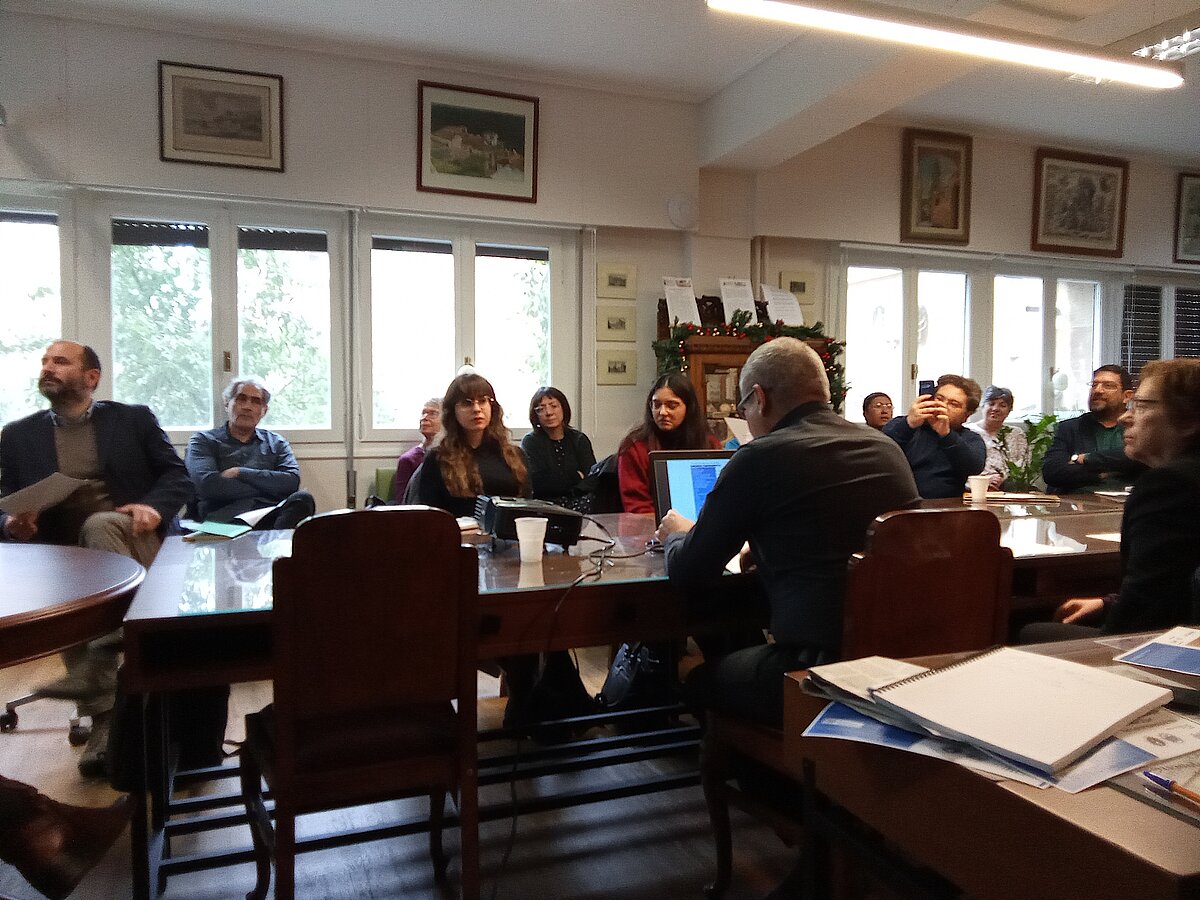On Languages and Scripts in the Ottoman Levant: The Case of Frangochiotika



“Frangochiotika” refers to the use of Latin script for writing the Greek language, and owes its name to Catholic priests from Chios and missionaries in the Greek Orient who first applied it in a regular way since the late 16th century. Its use peaked in the subsequent centuries and continued until the demise of the Ottoman Empire at the beginning of the 20th century. The books and manuscripts written in Frangochiotika represent a hitherto untapped reservoir of fascinating source material directly relevant to the study of key issues at the heart of the cluster's transversal working group on multilingualism and, in a broader perspective, of nodes 2 (identity and religion) and 3 (communication and mobility).
The centre of production and circulation of writings in Greek language with Latin script was the region of Smyrna and the neighbouring Archipelago. However, books in Frangochiotika were also printed in Istanbul, Venice, Rome, Paris and Vienna. This geographical dispersion illuminates the various connections between the heterogeneous Catholic communities in the Ottoman Levant with the networks of the Holy See, the Serenissima, the French and Habsburg empires. It also points to the intense mobilities and the imperial antagonisms and dynamics in Western Eurasia.
The use of an alternative alphabet has been a valuable means of identification and distinction for many religious minorities in the Ottoman Levant, and beyond. The continued use of the Latin script in printed and handwritten Greek from the period of the Ottoman conquest and the Catholic Counter-Reformation up to the era of nationalism offers valuable insights into the political, confessional and cultural exchanges and conflicts in the region. It also raises the question of a distinct religious and/or a hybrid ethnolinguistic identity whose fluctuating boundaries and character remain yet to be investigated.
The study of different translation and transliteration strategies employed by Catholics in non-Catholic lands, as well as an analysis of the diverse alternative approaches and uses of the Greek language and identity in early modern times, allows historical research to critically review various national master narratives shaped after the 19th century, which have privileged unity and uniformity at the expense of diversity and multiplicity.
The objective of the workshop was to reassess the uses of this fascinating idiom in the light of recent scholarship, to map the available bibliographical and archival resources, and to explore the potential for building a solid research infrastructure on the subject. The publication of the workshop's contributions in the forthcoming issue of the National Hellenic Research Foundation's journal The Historical Review/La Revue Historique represents a first step towards this objective.